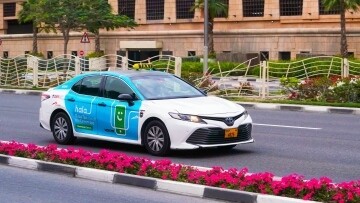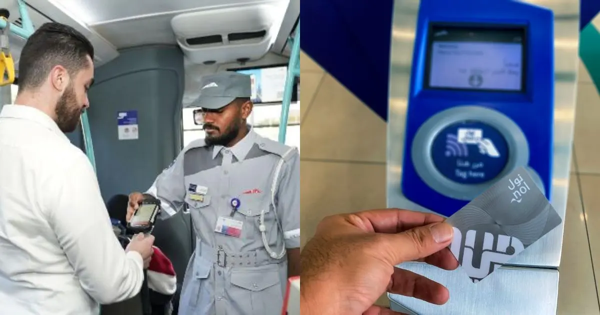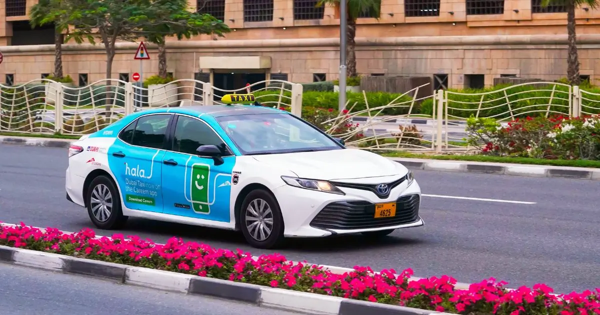
The Roads and Transport Authority (RTA) of Dubai announced a significant reduction in the average waiting time for a trip via electronic taxis compared to regular taxis, which equates to an economy of 5 minutes of unnecessary driving time per trip.
"These positive results underscore the success of RTA's strategic initiatives for modernizing and optimizing taxi services in Dubai, contributing to sustainable development, improving service quality, and ensuring accessibility for all segments of society, including residents, visitors, and tourists from around the world."
The transition to calling taxis through an electronic platform has significantly improved sustainability and the movement of transportation in Dubai. Over the past two years, the RTA has achieved substantial success in transforming the taxi sector in Dubai through technology for calling via electronic channels, supported by a series of strategic initiatives. These efforts have led to an increase in service efficiency and customer satisfaction levels.
The sector recorded a 16% growth in the market share of electronic taxi calls in 2024 compared to 2023. This transformation has encouraged users to take taxis and utilize the online-booking technology, having a positive impact on reducing congestion felt by taxis on the roads and the streets of the emirate, as most taxis are now entirely demand-driven, responding to requests received in advance through specialized applications. At the same time, the sector noted significant growth in 2024, attributed to the improvements and noticeable enhancements in service delivery. The satisfaction level of drivers has also improved, with a weekly reduction in driving time by 50 minutes and a decrease in mileage by 4%.
From an ecological perspective, the transition to calling taxis through an electronic platform has led to a significant reduction in CO2 emissions, totaling about 20,000 tons in 2024. The RTA has also improved key accessibility indicators for taxis during peak hours, enhancing both aspects – service provision and coverage. – noted Shakri. He added: "The satisfaction levels of customers and drivers have also shown significant improvement. Additionally, for the Hala market, peak hour share has grown from 42% in 2023 to 50% in 2024, reflecting users' growing preference for taxi calls in Dubai via the electronic platform over traditional street-hailing methods. This progress is a result of the commitment of the Roads and Transport Authority to expanding and optimizing the transition to online-booking platforms. Adil Shakri, director of planning and business development at the RTA, emphasized this progress, stating: "Agencies and sectors within the RTA remain focused on developing strategies aimed at alleviating road congestion caused by rapid economic growth and increased emirate population density. This has also encouraged passengers to shift to electronic taxi calls, better meeting their emerging needs. This shift is equivalent to removing 7,600 conventional transport vehicles from the roads daily, which is supplemented by designated taxis specifically designed for electronic calls during peak hours. Shakri added: "More than 74% of electronic bookings in 2024 are expected to occur in less than 3.5 minutes."














